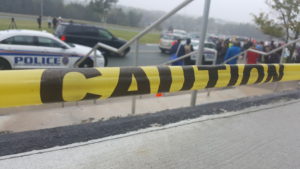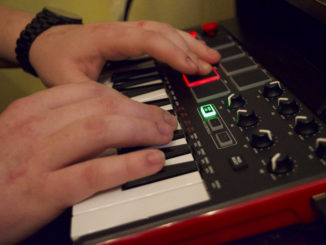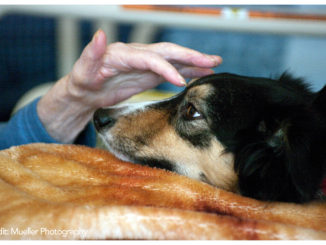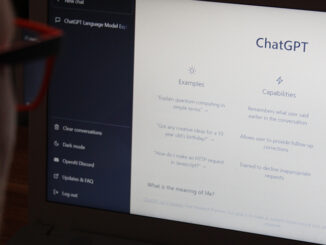‘It is when people go and get carried away that we seek a course of action’
Victoria Battcock
Kicker
During emergency situations, social media can be a blessing or a curse.
College of the North Atlantic on Prince Philip Drive was sent into lockdown mode at around 10 a.m. on Friday, Sept. 28, after a threat was made over social media.
The students were asked to stay in their classrooms with locked doors and stay there until the lockdown was lifted.
Rumours spread throughout the college as students started communicating through text messages, Snapchat and Facebook. A screenshot from a Facebook profile of the supposed student who made the threats quickly travelled from one smartphone to another.
Social media expert, Lyle Wetsch, said the speed of social media can exacerbate such situations.
“With the rapid dissemination of information on social media, needing to step back and define what is your source credibility becomes key,” said Wetsch.
He says people should always seek out the credible people in a given situation whether it be a law enforcement officer, the media or someone in the academic institution.

Then comes the challenge of trying to release information, said Wetsch, but also trying to disseminate what is actually going on. This conflict can be disruptive in academic settings by forcing the school into lockdown when there may not be a prevalent danger, unnecessarily frightening students.
“You don’t want to put out incorrect information,” said Wetsch. “You also don’t want to run the risk of putting people into harm’s way so finding a secure process becomes a good course of action.”
Wetsch explains that social media users can get carried away with sharing information. Credible sources are the resolution to seeking the truth when it comes to these scenarios, he says.
The spread of news and information happens rapidly in situations like what occurred at college. This worries many people, including Rosemary Ricciardelli, associate professor and criminology certification coordinator at Memorial University.
“I think that is the challenge that we deal with today – the rapid flow of information,” said Ricciardelli.
Anytime a person is dealing with something that could be related to a public safety incident, she said, retrieving evidence is the main priority. When a lockdown takes place, the aftermath could result in confusion and chaos.
Ricciardelli says anyone is capable of publishing information online, making it quick and easy to pick up false information online.
She says it is hard to tell if the published social media posts would produce copycats.
“It is really hard to measure and understand the ability for something to trigger other things to happen,” she said.
“It’s impossible to tell because correlation doesn’t mean causation and there’s no control group.”




Be the first to comment